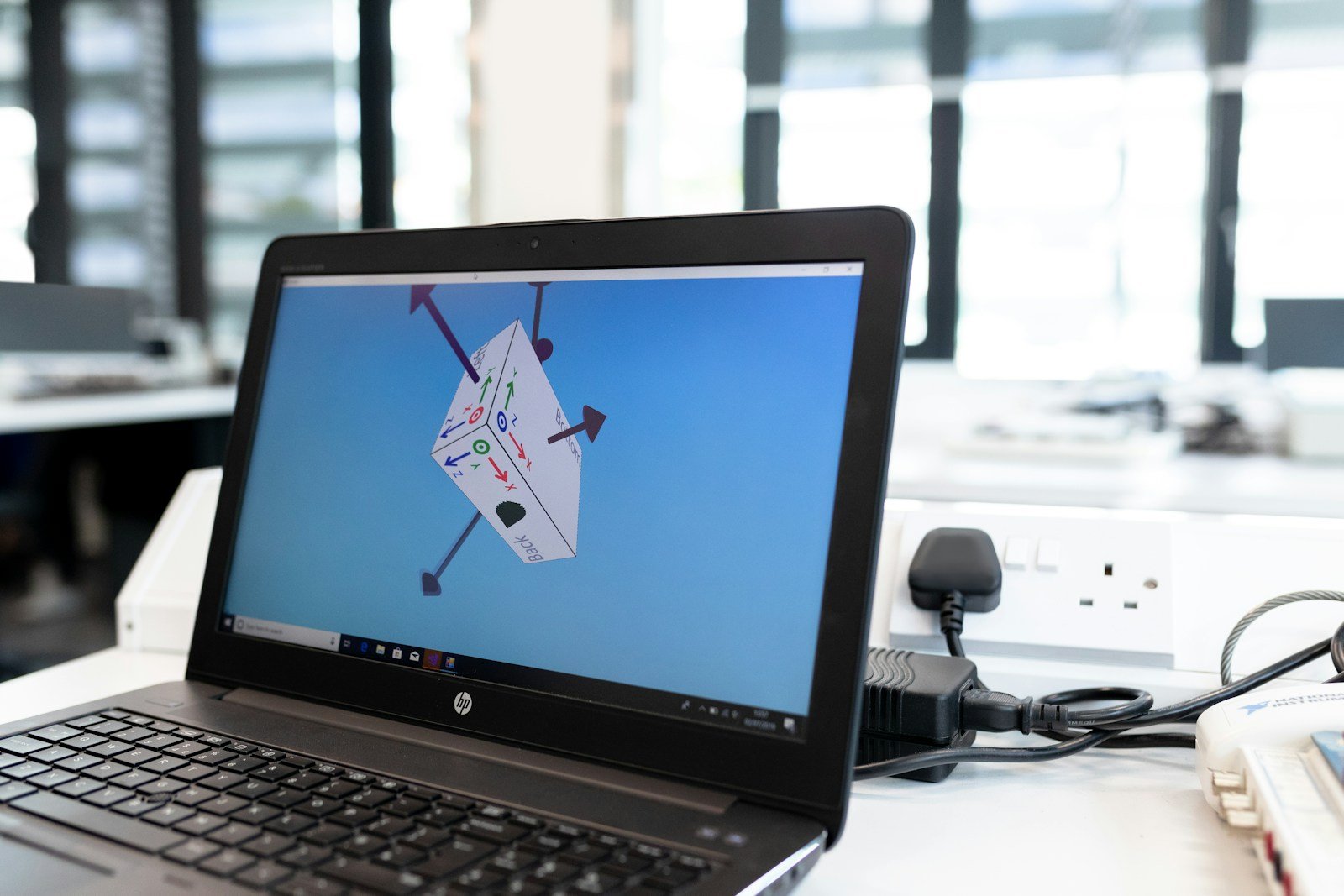Engineering students need powerful laptops to handle complex software and tasks. These laptops must be fast, have good graphics, and last all day. The best laptops for engineering students in 2024 have strong processors, lots of memory, and high-end graphics cards.
Many top laptops for engineering come from well-known brands. Dell, Asus, and Lenovo make some great choices. Apple’s MacBooks are also good options. These laptops can run programs like AutoCAD and MATLAB with ease.
When picking a laptop, students should think about more than just power. Weight, battery life, and screen size matter too. A laptop that’s too heavy or dies quickly won’t be helpful in class or the library. The right balance of features will make school work much easier.
The Top Laptops for Engineering Students (2025 Guide)
Engineering students need laptops that can handle CAD, MATLAB, SolidWorks, coding, simulations, and multitasking—all while being portable enough for campus life.
What to Look For in an Engineering Laptop
- CPU: At least Intel Core i7 (13th/14th gen) or AMD Ryzen 7.
- GPU: Dedicated graphics (NVIDIA RTX 4050/4060 or higher) for CAD, 3D modeling, and simulations.
- RAM: Minimum 16 GB (32 GB recommended for heavy workloads).
- Storage: 512 GB SSD or larger (1 TB preferred).
- Display: 15–16” with at least 1080p (QHD or 4K if you do design/graphics).
- Battery Life: 6–10 hours for portability.
- Weight: Ideally under 5 lbs for carrying around campus.
(sources: TechRadar, PCWorld, FeatureLens)
🏆 Best Laptops for Engineering Students (2025)
1. Dell XPS 15 (2025)
- Why: A balance of power, portability, and premium design.
- Specs: Intel Core i7/i9, NVIDIA RTX 4060, up to 32 GB RAM, 1 TB SSD.
- Best For: General engineering, CAD, and multitasking.
2. Apple MacBook Pro 16” (M3 Pro / M3 Max)
- Why: Outstanding performance, long battery life, and best-in-class display.
- Specs: Apple M3 Pro/Max chips, up to 64 GB unified memory, up to 2 TB SSD.
- Best For: Programming, simulations, and students in software/electrical engineering (less ideal for Windows-only CAD apps unless using virtualization).
3. Lenovo ThinkPad P1 Gen 7
- Why: Mobile workstation built for engineers and professionals.
- Specs: Intel Core Ultra 9 or Xeon, NVIDIA RTX 4000 Ada GPU, up to 64 GB RAM.
- Best For: Mechanical/Civil engineers using SolidWorks, AutoCAD, or ANSYS.
4. ASUS ROG Zephyrus G16 (2025)
- Why: A gaming laptop that doubles as a powerhouse for engineering workloads.
- Specs: Intel Core i9, NVIDIA RTX 4070/4080, 32 GB RAM.
- Best For: Students who want both engineering performance + gaming.
5. HP Spectre x360 14 (2025)
- Why: Lightweight 2-in-1 with solid performance and portability.
- Specs: Intel Core Ultra 7, integrated Arc graphics, 16 GB RAM, 1 TB SSD.
- Best For: Students who prioritize portability, note-taking, and battery life over heavy CAD.
6. Microsoft Surface Laptop Studio 2
- Why: Unique hinge design for drawing/sketching + strong hardware.
- Specs: Intel Core i7, NVIDIA RTX 4060, up to 32 GB RAM.
- Best For: Engineering + design students who also do creative work.
⚖️ Quick Comparison
| Laptop | Strengths | Weaknesses |
|---|---|---|
| Dell XPS 15 | Balanced, premium, powerful | Pricey at higher configs |
| MacBook Pro 16 (M3) | Battery life, display, performance | Some CAD tools not native |
| ThinkPad P1 Gen 7 | Workstation-grade, durable | Expensive, heavier |
| ASUS ROG Zephyrus G16 | High GPU power, gaming + work | Shorter battery life |
| HP Spectre x360 14 | Lightweight, 2-in-1, long battery | Not ideal for heavy CAD |
| Surface Laptop Studio 2 | Flexible design, RTX GPU | Pricey for specs |
✅ Summary
- Best Overall: Dell XPS 15 (2025)
- Best for Mac Users / Software Engineering: MacBook Pro 16 (M3 Pro/Max)
- Best for CAD & Heavy Workloads: Lenovo ThinkPad P1 Gen 7
- Best for Gaming + Engineering: ASUS ROG Zephyrus G16
- Best Lightweight Option: HP Spectre x360 14
- Best for Creatives + Engineering: Surface Laptop Studio 2
Key Takeaways
- Engineering laptops need strong processors and graphics for complex programs
- Top brands like Dell, Asus, and Apple offer good options for students
- Battery life and portability are key factors to consider along with performance
Selecting the Right Engineering Laptop
Picking a laptop for engineering can be tricky. You need to balance power, price, and portability. Let’s look at the key factors to consider.
Critical Hardware Specifications
Engineering laptops need strong processors and lots of memory. An Intel Core i7 or better CPU is a good choice. Aim for at least 16GB of RAM, but 32GB is better for big projects. Storage is also key. A 512GB or 1TB SSD will give you fast access to your files.
Graphics matter too. A dedicated GPU helps with 3D modeling and simulations. Look for an NVIDIA or AMD card with at least 4GB of VRAM.
Battery life is crucial for long study sessions. Pick a laptop that can last 8-10 hours on a charge.
Influence of Software Requirements
Engineering programs can be demanding. Software like AutoCAD, SolidWorks, and MATLAB need powerful hardware to run well.
Check the system requirements for the software you’ll use. Make sure your laptop meets or beats these specs. This will help your programs run smoothly.
Some schools have specific laptop requirements. Check with your department to see if they have a list of approved models.
Laptop Durability and Portability
Engineering students are often on the go. A sturdy laptop that can handle bumps and drops is a must. Look for models with metal cases or reinforced corners.
Weight is important too. A laptop under 5 pounds is easier to carry all day. But don’t sacrifice power for portability.
Screen size is a trade-off. A 15-inch display is good for most tasks. It’s big enough to work on but still fits in a backpack. Some students prefer smaller 13-inch models for better portability.
Recommended Laptops for Engineering Students
Engineering students need powerful laptops that can handle complex software and tasks. The right laptop depends on your field of study and budget.
Top Choices for Different Specializations
For mechanical engineering, the Dell XPS 15 is a top pick. It has a strong processor and good graphics card for CAD work. Computer science students might prefer the Lenovo ThinkPad X1 Carbon. It’s light but powerful for coding and virtual machines.
Electrical engineering students could benefit from the HP Spectre x360. Its 2-in-1 design lets you take notes with a stylus. For civil engineering, the Asus ROG Zephyrus G14 offers great performance in a compact size.
The MacBook Pro is good for any engineering field. It has a long battery life and works well with many engineering apps.
Connectivity and Expansion
Good laptops for engineering have lots of ports. The Dell XPS 17 offers USB-C, HDMI, and SD card slots. This helps connect to external displays and devices.
Thunderbolt ports are useful for fast data transfer. The Razer Blade 15 has these, plus USB-A ports for older devices.
Wi-Fi 6 is important for fast internet. Most new laptops have this feature. Some, like the Acer Swift 5, also include 5G support for working on the go.
Budget Considerations
You can find good laptops at different price points. The HP Victus 15 is a budget-friendly option with decent specs for basic engineering tasks.
For a mid-range choice, look at the Acer Predator Helios 300. It balances power and price well.
If money is tight, consider a Chromebook like the Acer Chromebook Spin 713. It’s cheap and good for light tasks and web-based apps.
Watch for sales and student discounts to save money. Refurbished laptops from trusted sellers can also be a good deal.







